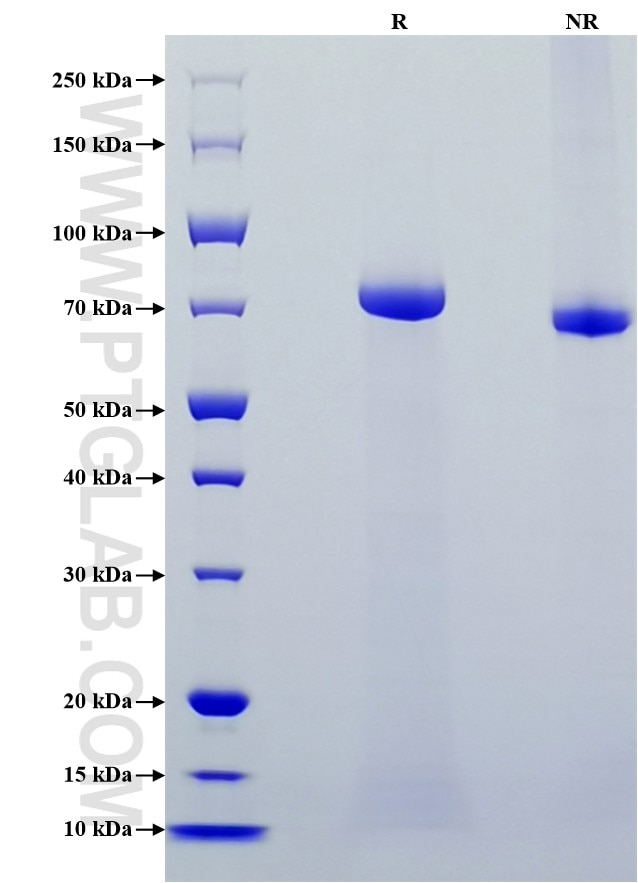Recombinant Human Plasma kallikrein/KLKB1 protein (His Tag)
Species
Human
Purity
>90 %, SDS-PAGE
Tag
His Tag
Activity
not tested
Cat no : Eg1163
Validation Data Gallery
Product Information
| Purity | >90 %, SDS-PAGE |
| Endotoxin | <1.0 EU/μg protein, LAL method |
| Activity |
Not tested |
| Expression | HEK293-derived Human Plasma kallikrein/KLKB1 protein Gly20-Ala638 (Accession# P03952, Ser143Asn) with a His tag at the C-terminus. |
| GeneID | 3818 |
| Accession | P03952 |
| PredictedSize | 70.3 kDa |
| SDS-PAGE | |
| Formulation | Lyophilized from 0.22 μm filtered solution in PBS, pH 7.4. Normally 5% trehalose and 5% mannitol are added as protectants before lyophilization. |
| Reconstitution | Briefly centrifuge the tube before opening. Reconstitute at 0.1-0.5 mg/mL in sterile water. |
| Storage Conditions |
It is recommended that the protein be aliquoted for optimal storage. Avoid repeated freeze-thaw cycles.
|
| Shipping | The product is shipped at ambient temperature. Upon receipt, store it immediately at the recommended temperature. |
Background
Human Plasma Kallikrein, a serine protease also named as KLKB1, KLK3, PPK or Kininogenin, is synthesized in the liver and circulates in the plasma by binding to high molecular weight (HMW) kininogen or as a free zymogen. It cleaves HMW kininogen, its major physiological substrate, to release the potent vasodilator peptide bradykinin. It is also able to cleave a number of inactive precursor proteins to generate active products, such as plasminogen and prourokinase. Thus, it plays an important role in blood pressure regulation, fibrinolysis, and neutrophil activation.
References:
1. Sainz, Irma M et al. Thrombosis and haemostasis vol. 98,1 (2007): 77-83. 2. Neth, P et al. Thrombosis and haemostasis vol. 85,6 (2001): 1043-7. 3. Fink, Edwin et al. Biological chemistry vol. 388,9 (2007): 957-63. 4. Peek, Mark et al. The Journal of biological chemistry vol. 277,49 (2002): 47804-9.

